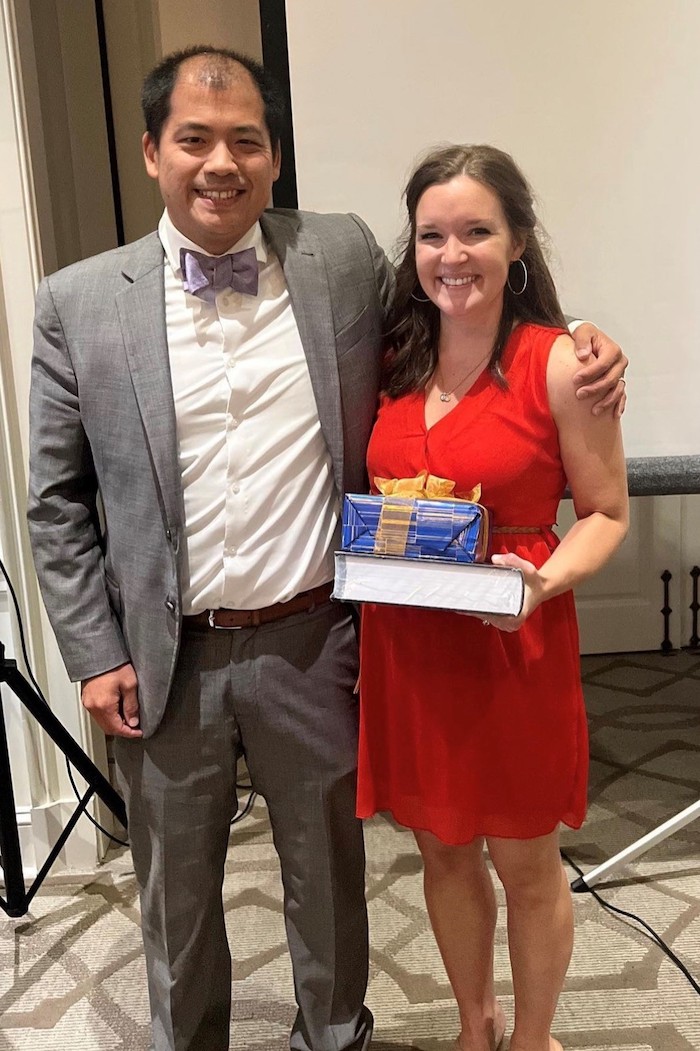Fellowship Program
Ophthalmology Fellowship Program

Overview
The University of Mississippi Department of Ophthalmology offers an AUPO-accredited two-year surgical retina fellowship, under the direction of Drs. Albert Lin, Khushboo Agrawal, and William Watkins. The goals of the surgical fellowship are to give a broad medical and surgical foundation for fellows to be flexible for their long-term career goals. Fellows are trained to be well versed in the most modern medical and surgical advances as well as with the current trends in vitreoretinal surgery.
Fellowship information
Clinical information
Fellows will work in a variety of situations to develop their education and grow their autonomic decision making. Fellows work closely with attendings in their respective clinics and surgeries in order to learn from them. In attending clinic, the fellows are exposed to a variety of diseases including retinal vascular disease, macular pathology, inherited retinal diseases, uveitis, trauma, pediatric retina, and ocular oncology as well. Fellows also staff resident retina clinic with backup attending supervision, in order to develop their clinical decision-making with the goal to give fellows the confidence to manage difficult conditions by the end of their first year.
In clinical practice, fellows will have enough opportunities to practice and perform retina-specific procedures, including intravitreal and sub-Tenon injections, laser, in-office fluid exchanges, and pneumatic retinopathy. Our practice exceeds the AUPO minimums by several multiples. Fellows will also gain experience in interpreting OCT and OCT angiography, fluorescein and ICG angiography, UBM and B-scan ultrasonography, and ERG.
Fellows primarily cover the outpatient clinic at the University of Mississippi Medical Center but also cover retina-related issues at the emergency department, inpatient hospital, and children’s hospital (Batson/Sanderson facilities) at the University of Mississippi Medical Center. In addition, fellows may occasionally travel to satellite clinics in the state for more exposure to places to see patients with poor access to care – satellite clinics are typically less than an hour and half away. Fellows may also participate in retinopathy of prematurity rounds and treatment with pediatric ophthalmology.
Surgical
One of the biggest focuses of the fellowship is to train fellows not only good surgical technique, but also surgical management as well. In addition to modern small gauge vitrectomy, the fellows will also gain training in how to perform scleral buckling, managing lens-related complications from cataract surgery, and severe ocular trauma. Fellows will also gain exposure to pediatric surgical retina and plaque brachytherapy for uveal melanoma. A minimum of 400 primary cases are projected but may increase over time. Fellows will also have opportunities to perform and staff cataract surgeries and open globes.
Scholarly duties
Fellows are encouraged to conduct translational and clinical research but is not a requirement for fellows given the heavy clinical nature of the program. While no structured protected time is given for research, it may be provided on request based on the nature of the project.
Participation in specialty conferences and meetings is highly encouraged. Fellows will be sent to at least one fellows’ course and are encouraged to attend specialty meetings such as ASRS and subspecialty day at AAO. Meetings are reimbursed, especially if a presentation or paper is presented at such meetings.
Fellows are responsible for organizing monthly imaging conference for the department. The focus of the conference is educational toward the residents, with multimodal imaging of interesting and unusual cases taught to the residents in a responsive format.
Administrative/benefits
Fellows are paid proportionally to PGY level after residency. Thus, first year fellows are paid on a PGY-5 level, and second year fellows are paid on a PGY-6 level (see here for details). Fellows are also allowed to participate in retirement plans and benefits packages, such as health and dental insurance, offered by UMMC.
Fellows are required to take call 50% of weekends and are expected to be on weekday call throughout the day in tandem with UMMC residents, barring personal emergencies or planned protected time.
As part of the UMMC staff, fellows are also required to complete any necessary paperwork/educational training required by UMMC in order to remain in compliance.


